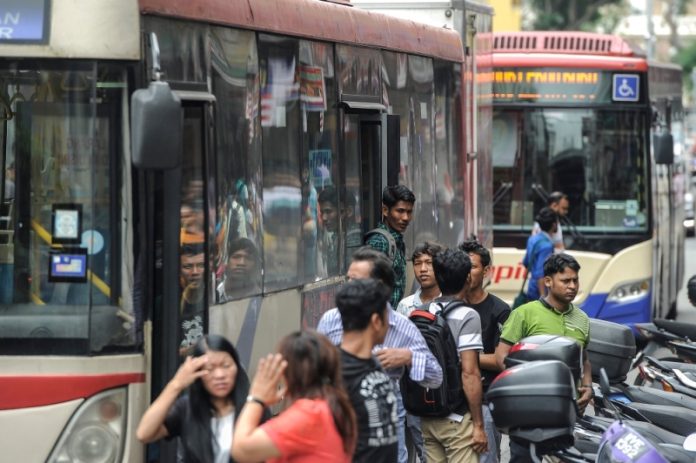Malaysian authorities plan to review bilateral relations with 15 countries in an attempt to address exploitation and labour imbalance, officials said.
Thousands of migrants, mostly from Bangladesh and Nepal, have been stranded since arriving in Malaysia last year, where they were told that jobs promised to them in exchange for high recruitment fees were no longer available.
The migrants’ plight has coincided with concerns about workplace abuses in Malaysia, with several companies in recent years coming under a US ban for using forced labour. Many workers said they had not been paid their wages.
The labour and home affairs ministers told reporters at a news conference Tuesday that the distribution of labour is uneven across the economy, forcing a review of bilateral agreements.
They said Malaysia still had a shortage of workers in agriculture and plantations, while quotas were exceeded in other sectors. Home Minister Saifuddin Nasution Ismail said, adding that the government would allow the transfer of worker quotas across sectors:
“We will revisit the agreements looking at various elements including fees, costs, contract conditions, health and so on.”
Human Resources Minister Stephen Sim said authorities had completed investigations into five firms involved in hiring hundreds of workers who were subsequently unemployed last year.
He said employers who hired such workers must pay their salaries even if they do not have jobs. The minister added that if the law is violated, companies and individuals will no longer be able to hire migrant workers.
Workers from Nepal, Indonesia and Bangladesh account for more than 70% of Malaysia’s labour migrants. The remaining 30 per cent are from Pakistan, India, Thailand and Vietnam.
751 Bangladeshi migrant workers have filed lawsuits with the labour department for unpaid wages totalling 2.2 million ringgit ($467,687).
